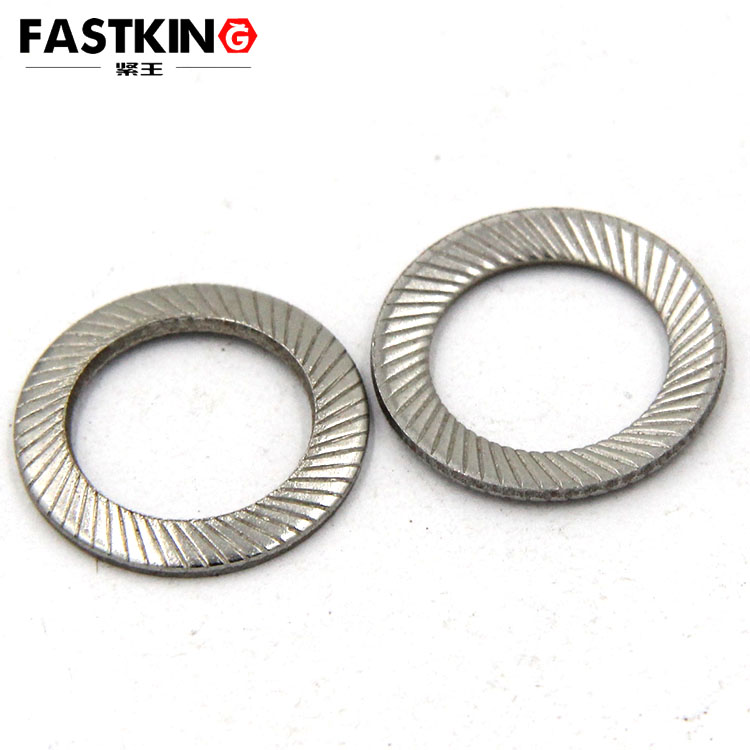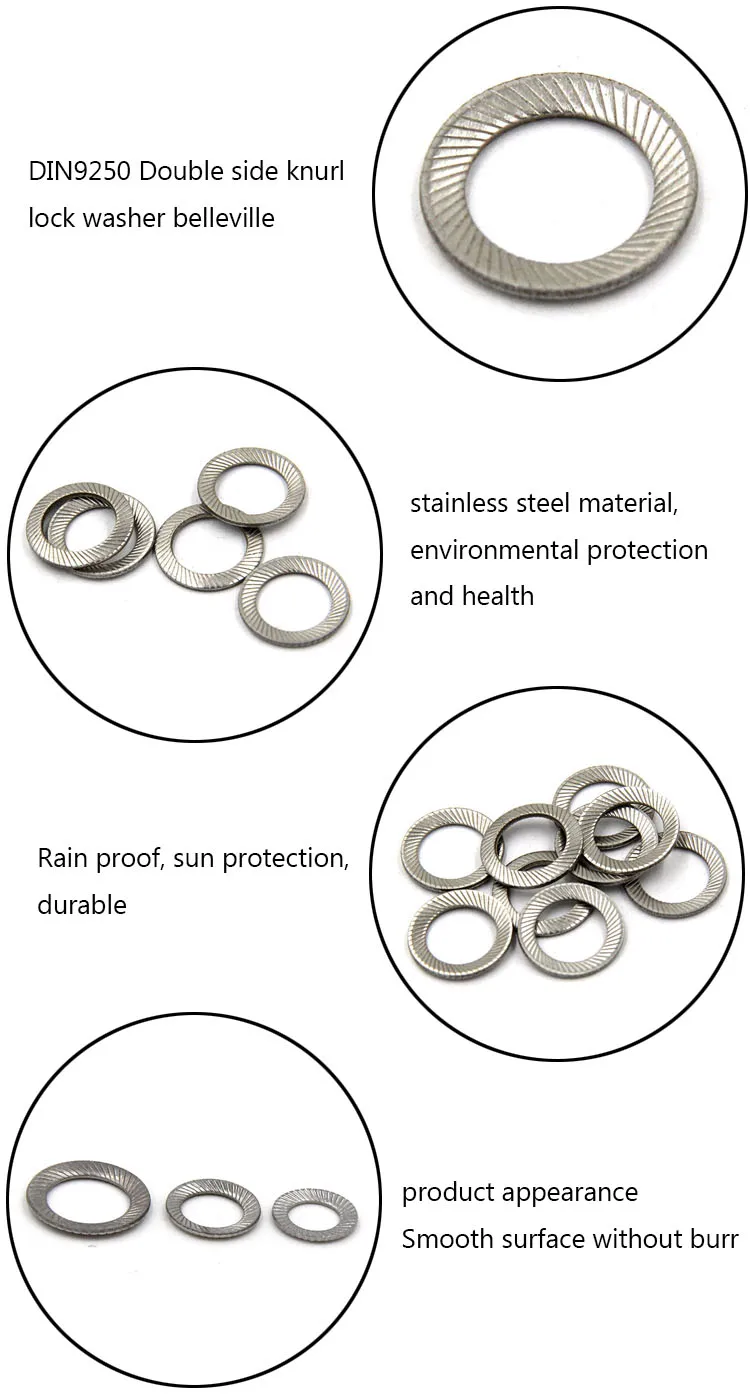
Applications and Use Cases of DIN 9250 Lock Washers
Introduction
DIN 9250 lock washers, specifically designed to prevent loosening caused by vibration and dynamic forces, are essential components in various industrial applications. These washers, available in both heavy (VS) and light (S) types, are manufactured according to the DIN 9250 standard, which specifies their design and performance requirements. This article explores the key applications and benefits of DIN 9250 lock washers across different industries.
I. Features of DIN 9250 Lock Washers
1. Double-Faced Printing: Both sides of the washer are treated to increase friction between the nut and the surface, significantly reducing the risk of loosening.
2. Heavy and Light Types: The heavy type (VS) is thicker and stronger, making it suitable for high-stress applications, while the light type (S) is designed for less demanding environments.
3. Material Options: Typically made from stainless steel, carbon steel, or alloy steel, these washers offer durability and corrosion resistance.
4. Surface Treatments: Coatings such as zinc or phosphate enhance corrosion resistance, making them suitable for harsh environments.
II. Applications
1. Automotive and Heavy Machinery
DIN 9250 lock washers are extensively used in the automotive industry for engine assemblies, transmissions, and suspension systems. These high-torque environments demand washers that can prevent loosening over time. Similarly, in heavy machinery and construction equipment, DIN 9250 washers ensure that critical components remain securely fastened.
2. Industrial Equipment
Manufacturing plants and industrial machines require fasteners that can endure repetitive stress and vibration. DIN 9250 lock washers provide a reliable solution to prevent component failure in dynamic environments.
3. Aerospace and Defense
In aerospace applications, fasteners are exposed to extreme temperatures, pressure, and vibration. DIN 9250 lock washers ensure the secure fastening of critical components, reducing the risk of mechanical failure during flight or other defense-related operations.
4. Energy Sector
These lock washers are commonly used in renewable energy installations, such as wind turbines and solar panel mounting systems. The constant exposure to wind and weather can cause loosening in fastened joints, but DIN 9250 lock washers prevent this by ensuring a secure hold even under fluctuating conditions.
5. General Industrial Use
DIN 9250 lock washers are also used in various general industrial applications, including fixing brackets, supports, and other structural components. They are ideal for environments where vibration and dynamic forces are common.

III. Benefits of DIN 9250 Lock Washers
1. Prevents Loosening Due to Vibration: The double-faced printing design increases friction, ensuring that the assembly remains secure even under constant vibration.
2. High Strength for Demanding Applications: The heavy type classification means these washers are thicker and stronger, making them ideal for high-torque and high-stress applications.
3. Corrosion Resistance: Depending on the coating and material, DIN 9250 lock washers offer excellent resistance to corrosion, making them suitable for harsh environments.
4. Easy Installation: These washers are simple to install and fit seamlessly with bolts, nuts, or screws, simplifying the assembly process.
5. Versatility Across Industries: DIN 9250 lock washers can be used in numerous industries, making them a versatile solution for any project requiring secure fastening under challenging conditions.
IV. Choosing the Right DIN 9250 Lock Washer
Selecting the right DIN 9250 lock washer depends on several factors:
1. Material: Choose a material that matches the environmental conditions of your application. Stainless steel is ideal for corrosive environments, while carbon steel is suitable for less demanding applications.
2. Coating: Surface coatings such as zinc or phosphate can improve corrosion resistance, ensuring a longer lifespan in outdoor or moisture-prone settings.
3. Size and Thickness: Ensure the washer’s dimensions match the specifications of your assembly, including the bolt size, thickness, and load requirements.
4. Torque Specifications: Adhering to the recommended torque specifications for the lock washer is essential to maintaining the integrity of the fastened joint.
V. Conclusion
DIN 9250 lock washers are a powerful solution for preventing loosening in fastened joints across a variety of industries. Their robust design, resistance to vibration, and durability make them a reliable choice for applications that demand secure fastening under high stress. Whether used in automotive, aerospace, industrial machinery, or renewable energy, DIN 9250 lock washers ensure long-lasting performance in any environment.
